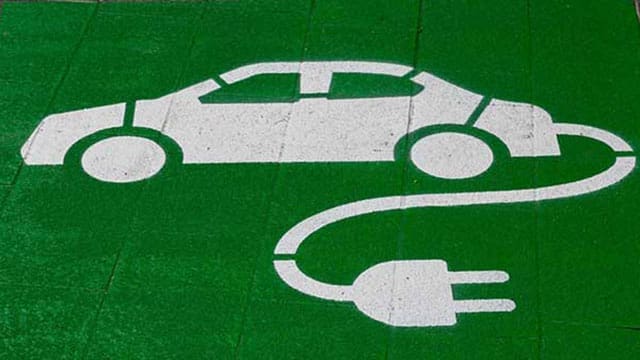Not an environmental panacea by any stretch of the imagination
 Is the age of electric vehicles upon us?
Is the age of electric vehicles upon us?
A BloombergNEF report in September suggested that over half of the passenger cars sold in the U.S. by 2030 would be electric vehicles. This surprising prediction was largely tied to US$374 million in consumer incentives that President Joe Biden had enacted through his administration’s heightened focus on climate spending.
Biden’s Inflation Reduction Act introduced a US$7,500 tax credit for a new electric vehicle assembled in North America. It would also increase domestic battery production, which would benefit automakers like Tesla, GM and Ford and help make the price more cost-effective for the average American consumer.
According to BloombergNEF electric car analyst Corey Cantor, “there shouldn’t be too much of a difference” in sales over the next year and beyond. “Later in the decade,” he noted, “we expect not only the EV tax credit but the battery production tax credit to drive a steeper decline in EV costs.”
 |
| Related Stories |
| Canada’s electric vehicle ambitions are pure foolhardy fantasy
|
| Green enviro-dreams based on fantasy, not science
|
| Switching to electric vehicles won’t avert climate change |
These details sounded promising to some people on the surface. Progress in developing a better and more efficient passenger car should always be encouraged, and not discouraged.
Interest in electric vehicles has grown substantially in North America in recent years. Implementing additional tax credits and reducing the average EV price would increase consumer interest and enthusiasm. The ever-fluctuating price of gas, combined with Prime Minister Justin Trudeau’s crippling carbon tax, has driven many Canadians up the proverbial wall to the point where they would at least consider purchasing an electric vehicle. Environmentally-conscious individuals, who have railed against so-called “gas guzzlers” for decades, should be euphoric that auto production in the U.S. – and, by extension, Canada – could be moving to cleaner, greener vehicles in a few short years.
Then again, maybe they should curb that enthusiasm for just a bit longer.
“For those who have looked more deeply at how the world can escape its dependence on oil and gas,” CBC News business columnist Don Pittis wrote on Dec. 12, “the rush to replace existing gas guzzlers with a new fleet of clean, silent battery-powered personal transport leaves them uneasy.”
How so?
Pittis’s phone interview with longtime journalist and author John Lorinc revealed a few concerns. “It’s a really important evolution of technology to get away from internal combustion engines, so that part is necessary,” Lorinc said. At the same time, he pointed out that electric vehicles “are large engineered objects that require a lot of metal, they require a lot of components that are shipped all over the place. There’s a lot of mining and processing of minerals required to make the components, so it’s not an environmental panacea by any stretch of the imagination.”
It’s also worth mentioning urban planning advocate Jason Slaughter’s thoughts. “EVs are here to save the car industry, not the planet; that is crystal clear,” he wrote in an email to Pittis. “Electric cars use batteries instead of gasoline, but they are still a horrendously inefficient way to move people around, especially in crowded cities.”
Whether you agree or disagree with Lorinc and Slaughter about the future of automobiles and the environment is immaterial. Rather, the fact that several so-called “climate strategists,” as the CBC article described them, believe there are significant problems with electric vehicles is telling.
While it’s fair to say the environment, climate change, going “green,” and reducing our carbon footprint isn’t a top priority for everyone, the issues are top of mind for most of us. Ideas, concepts, inventions and innovation that are perceived as pro-environment often receive a higher priority in our society, even if they prove to be unsuccessful.
If some environmentalists are becoming more worried about the potential short-term and long-term environmental impact of manufacturing electric cars in North America, this could shift the needle in a completely different direction. This doesn’t mean EV production would suddenly come to a screeching halt, but it could make more people hesitant to permanently shift away from the conventional vehicles we’ve used since the days of Henry Ford and the Model T.
It seems that the age of electric vehicles isn’t upon us just yet.
Michael Taube, a Troy Media syndicated columnist and Washington Times contributor, was a speechwriter for former prime minister Stephen Harper. He holds a master’s degree in comparative politics from the London School of Economics.
For interview requests, click here.
The opinions expressed by our columnists and contributors are theirs alone and do not inherently or expressly reflect the views of our publication.
© Troy Media
Troy Media is an editorial content provider to media outlets and its own hosted community news outlets across Canada.

